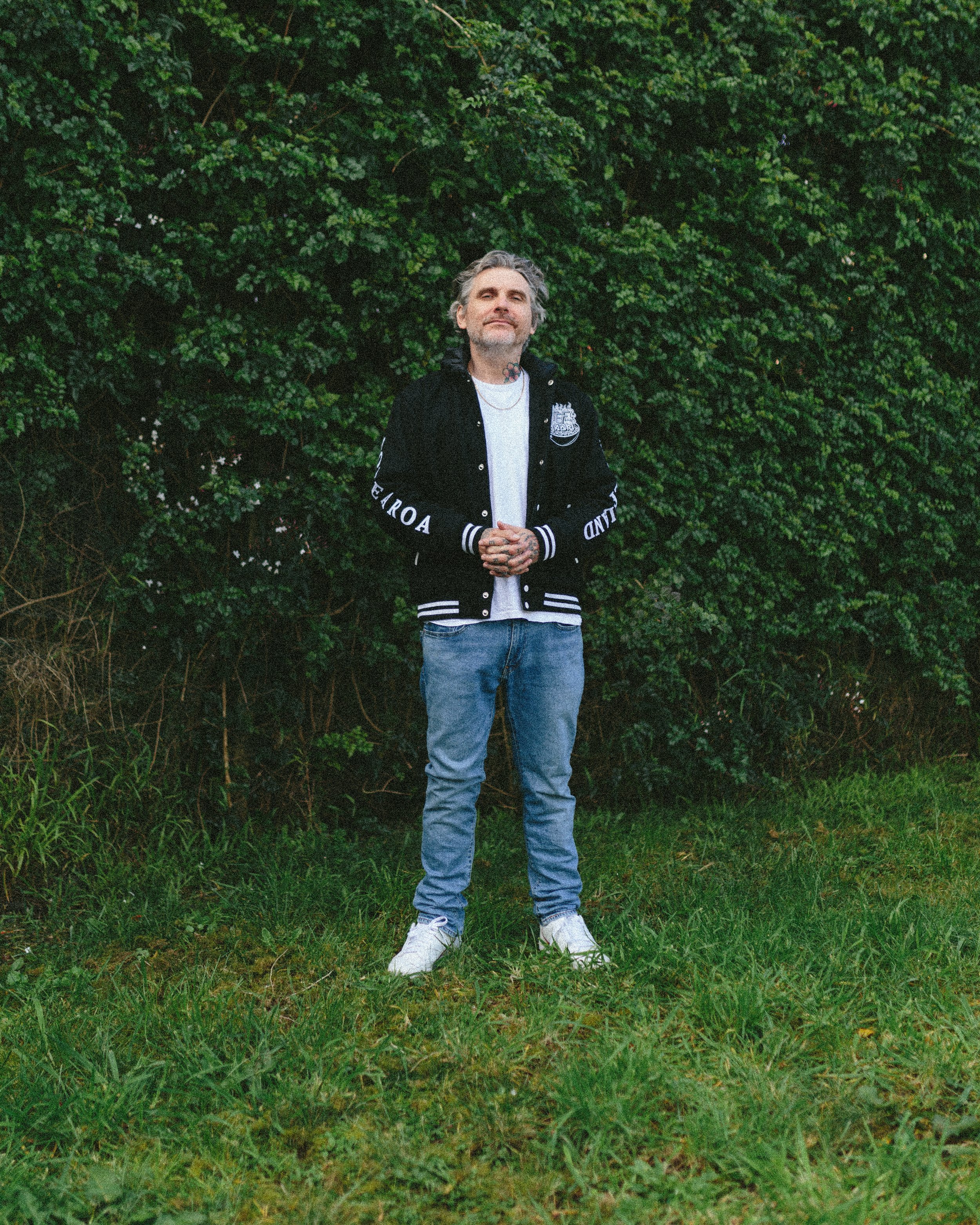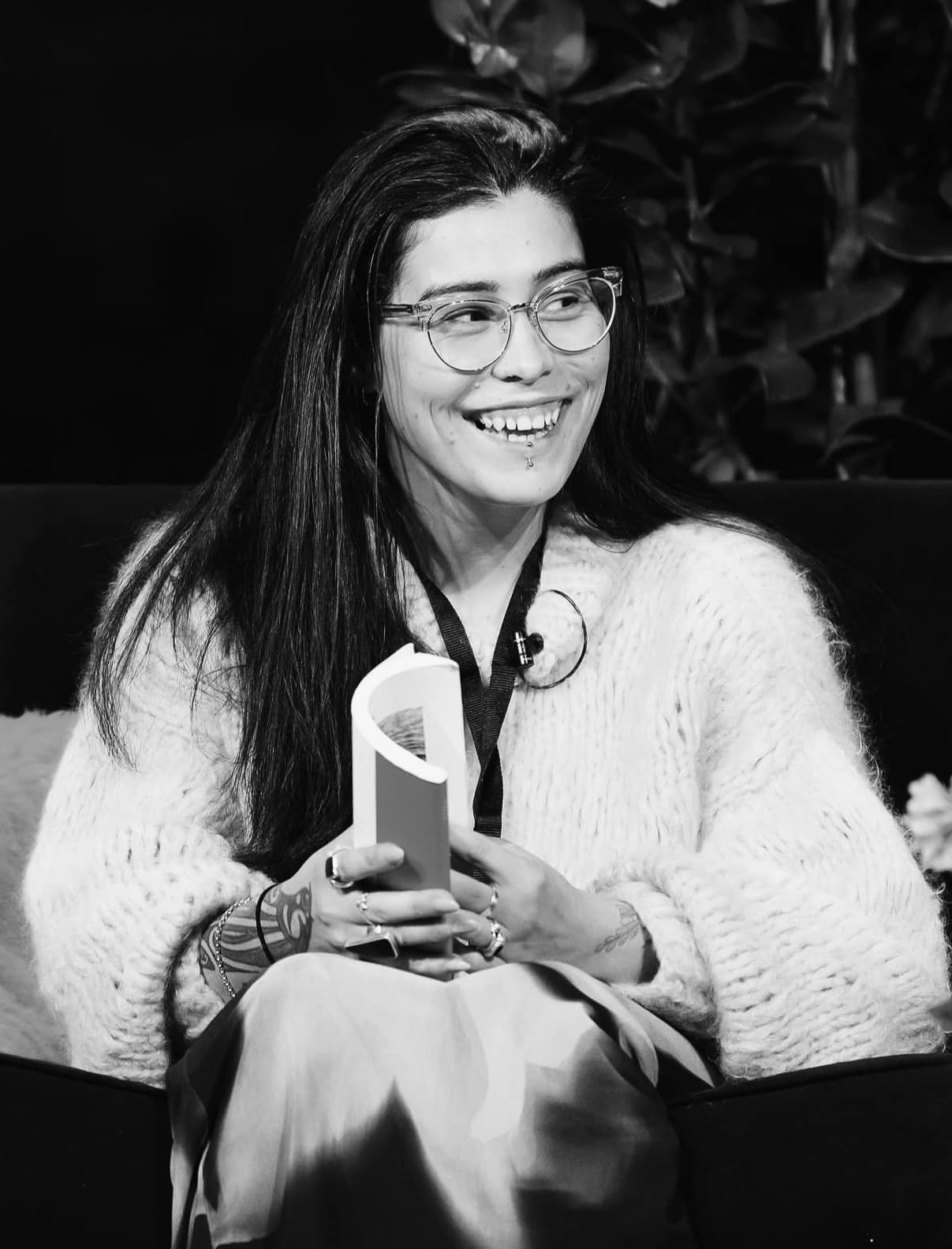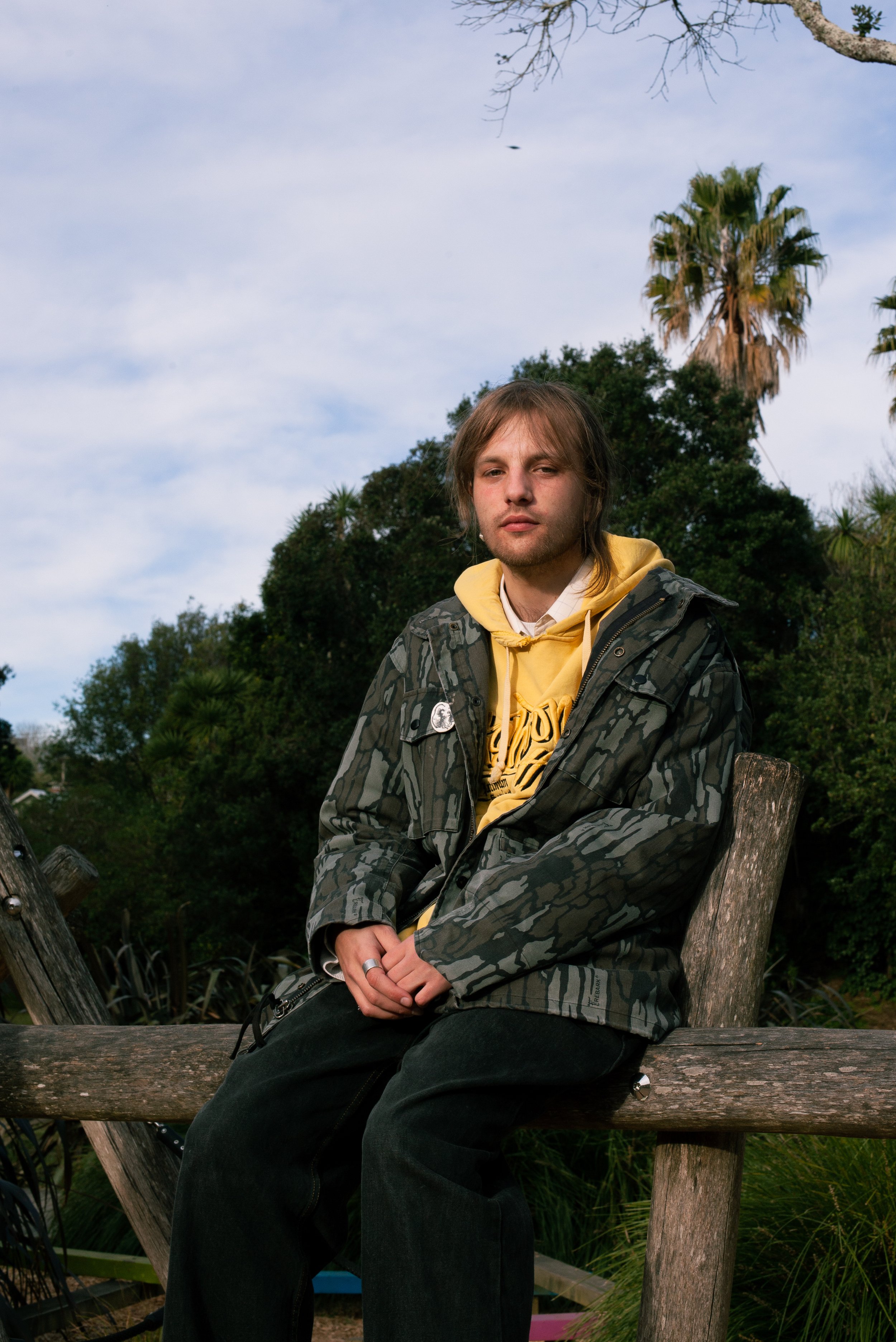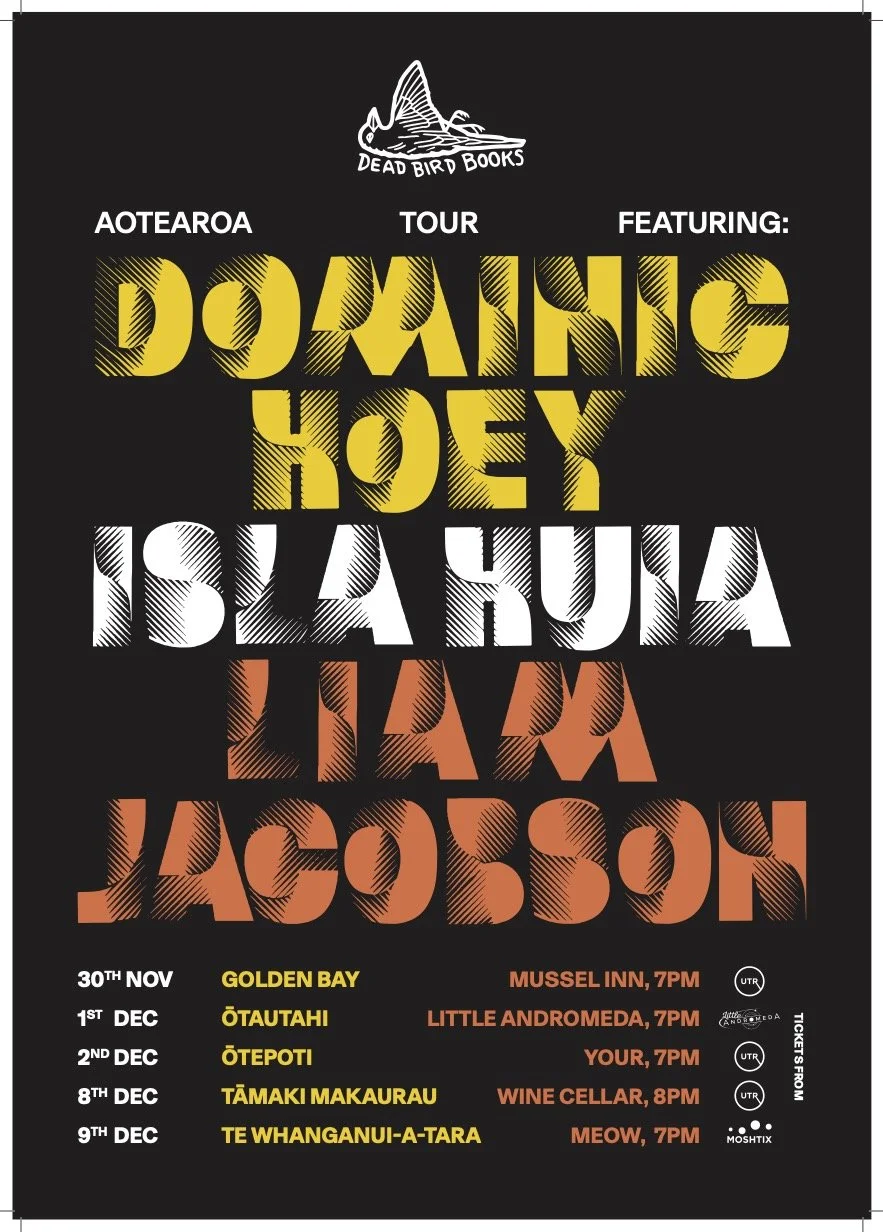INTERVIEW: Dominic Hoey
Rat World spoke to award winning poet and writer Dominic Hoey, ahead of his November book release, The Dead Are Always Laughing at Us. Hoey is a literary outlaw, and a poetic straight shooter. Ranging from imaginative scenes of an out-of-pocket youth, to forthright and vigorous critique of late-stage capitalism - The Dead Are Always Laughing At Us is his newest collection of poems that are sometimes hilarious, sometimes grim, and always brimming with insight.
Video calling from the U.S, Hoey spoke of the rap and poetry community as having a ‘DIY punk ethos’, with self sufficiency and accessibility at the forefront. The accessibility of his poetry is twofold: those without a university education find kotahitanga (solidarity) within his work, and those with an education, read Hoey’s poetry and build further understanding of life outside well resourced institutions; the life of working class, everyday people.
Dominic Hoey will be joining Isla Huia and Liam Jacobsen for an Aotearoa Book Tour from November 30th - book your tickets here!
Interview by Niamh Pritchard
Where are you calling from today?
I’m in Detroit and I’ve been writing my new novel. My partner is from here and we’ve been doing long distance for years. It’s Halloween here. We’ve just been on a haunted hayride and then to this street that’s sort of like Franklin Rd in Auckland, you know, with the Christmas lights, but it’s Halloween. People spend thousands of dollars on it. It’s crazy. I’ve never seen anything like it.
As someone with a career in the arts, was there a turning point where you realized you didn’t need a university education to be a successful poet?
In my mid 20s my friend and I tried to enrol in uni, we were on the dole and working minimum wage jobs. But we were both so dyslexic that the guy at the counter said, if you can’t sign up, you’re not going to get into uni. I eventually got in, but because of my dyslexia it just didn’t work for me. By that point I already had a music career - I was doing poetry shows, selling zines and making enough money to get by. I just thought, obviously I can do this without this system. It’s a real shame because I think that system should be accessible to everyone.
Well, Rat World, I’m not sure of the history of it, but it seems like something they’ve just done because they wanted to do it and it’s doing really well. You know some people go to university and it really works for them and they have amazing careers. But for people who don't find it accessible - don’t think that you can’t be just, if not more, successful.
“I don’t wanna be rich
i just want enough money
to never have to think about money”
- The Dead Are Always Laughing At Us
In The Dead are Always Laughing at Us you write about the rangatahi you worked with meeting Prince Charles. Have you found any similarity between your approach to poetry and your approach to youth work?
The thing about being an artist, whether that’s on the page, as a performer or recording, is you have to be 100% yourself. The minute you are 1% not yourself, it doesn’t work and the audience will just leave. It’s the exact same with youth work when you’re engaging with people. There’s a saying we have: you can’t bullshit the kids. Being an artist, it can be quite egocentric. There is no ego in youth work and that’s really healthy for artists.
I’ve found it equal parts funny and sad, that people get so worked up by the way you write poetry and feel the need to police your grammar and punctuation. It feels like people are missing the point of your work. What do you say to that?
I think really as an artist, your voice and style comes from your limitations as much as your talents. As someone who is dyslexic and doesn’t have much formal education, I could waste a lot of energy hiding those things, or I could make it part of my work - it then becomes something that makes me stand out, so yeah, I’m really embracing that. But it’s incredible the amount of people that don’t understand satire. I’m blown away every day. I don’t know if it’s a dying art’.
As someone with dyslexia, I wanted to know, what experiences in highschool shaped your writing style and interest in the arts?
I didn’t realise but my Mum said that I had been writing stuff since I was seven. My parents would read to me and through this, I learnt about narrative and these quite sophisticated ways of telling a story. I went to Grey Lynn Primary, Western Springs and then Metropolitan College. You didn’t have to go to classes at Metro, and you could vote on where the school spent its money. Whatever you wanted to do, for me it was music and writing, you could do it all day. From graffiti to fine art. I think what happened was when you left that school, you had a head start on people. I’ve been teaching people at the City Mission and rangatahi through Youth Justice, and I’ve learnt that your writing can have all the craft you want, but if you don’t have a story, it’s pointless.
“People pay 40 grand to learn to be an artist,
then say they don’t know what they’re doing.
I guess their teachers didn’t tell them that’s what being an artist is”
- The Dead Are Always Laughing At Us
The Dead Are Always Laughing At Us is dedicated to your best friend Louie Knuxx (Todd Williams) who passed away in 2021. With respect to his mana, I wanted to give you the opportunity to speak to your friendship and the book.
I’ve got lots of friends that are like family, but he was particularly like that. We met in our early twenties, he had moved to Auckland from Taranaki. We were inseparable really. We helped each other, got out of poverty together. By the time he died, we both had money for the first time. We used to joke about it - the crazy sh*t he would do with his money. He was a really special person, someone that brought people together. I’m actually writing a play about him at the moment, it’s going to be a one person show about our friendship. It’s strange to create work without him, because he was always one of the people I was writing for
To celebrate the launch of The Dead Are Always Laughing At Us, you are touring the motu with poets Isla Huia & Liam Jacobson. Where did the idea for a book tour come from?
Poetry is an art form that shouldn’t be stuck in universities or bookstores. There’s nothing wrong with that, but the people who engage with my art, in general, aren’t going to these spaces. For this tour we’re hiring a car, but the last one we did we had a van and it was full of books and guitars. It’s so much fun and really exciting to go with Isla and Liam, because they haven’t done this sort of thing before. But I’m old as sh*t and I’ve been doing it forever



Above: Dominic Hoey, Isla Huia and Liam Jacobson
And in the spirit of fun and with respect to the ‘punk ethos’ of the upcoming tour: if you, Isla & Liam were in a touring band, who would play what instrument and why?
Liam would play guitar because he’s like, super floaty. Isla would play the drums because her stuff has got that really sharp rhythm. And then, I don’t know, I’d probably roll around on the ground.
■
Click here to grab a copy of The Dead Are Always Laughing At Us, out on 30th November.
And catch Dominic Hoey, Isla Huia and Liam Jacobson on their Book Tour in:
Golden Bay (Mussel Inn, 30/11)
Ōtautahi (Little Andromeda, 01/12)
Ōtepoti (Yours, 02/12)
Tāmaki Makaurau (The Wine Cellar, 08/12)
Te Whanganui-a-tara (Meow, 09/12).



